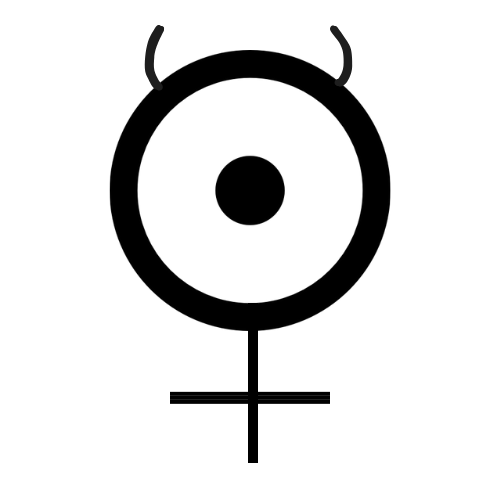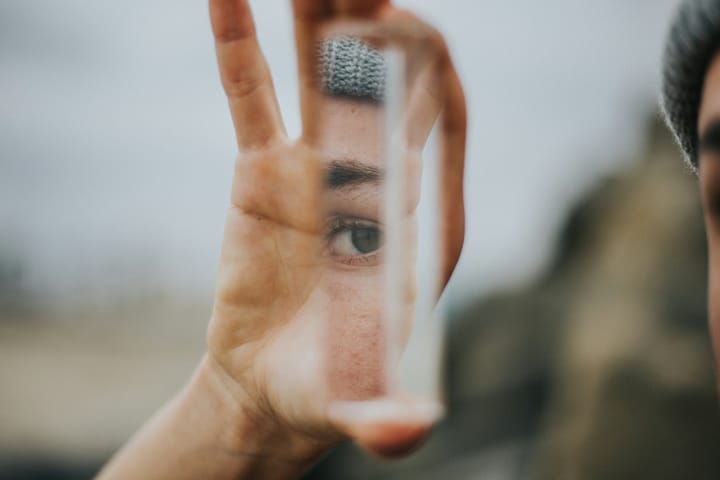How to Venerate Jewish Ancestors When You're Not a Jew
Because I grew up in the second most populous Jewish area in the world, I met a variety of Jews. Most of us were religiously Jewish to some degree, some of us were simply culturally Jewish, and then there were the few who had been raised completely outside of Judaism. It was that last group who I always saw light up in hesitating curiosity and ownership, wanting to know more about who and what they had come from, but finding serious challenges in knowing their place in it.
As DNA testing has become popularized, more and more people I know have discovered lost Jewish ancestry. As they do, we have the conversation about how in most cases throughout history, Jews gave up their Judaism due to active oppression. They usually did so in order to survive a new antiJewish regime in their homeland or to find safety and prosperity in a new land they moved to. And in Judaism's case, lost culture and religion is often not so simply regained.
Judaism is a non-proselytizing religion that requires conversion when one is not born to Jewish parents. Conversion is not like Christian conversion—a rabbi doesn't wave their hand over your head, mumble a few words in Hebrew, and tell you you're free to go. Instead, Jewish conversion requires pure desire on the person's part to become Jewish, enrollment and completion of introductory Judaism courses, potentially circumcision in the case of those who have penises, a creation and meeting of a "Rabbinic court" which contains one rabbi and two other knowledgeable Jews in which the convert's knowledge and commitment to Judaism is evaluated, a mikveh (ritual bath), and the choosing and giving of a Hebrew name. Because Jewish conversion is so demanding, I have joked with (always self-conscious) converts that they truly are the real Jews whereas I lazed in via birth.
This leaves Jewish descendants who may or may not have intact Jewish familial lines that count them as Jewish with both the trauma of what their ancestors endured as well as the continued loss of culture and belonging, if not also religion. To be clear, you do not have to intend to convert to Judaism if you want to explore Judaism; Rabbi Danya Ruttenberg has a great guide on how to do this. However, where it can get confusing for some people of Jewish ancestry is how to connect with their ancestors in a way that's respectful to living Jews if they don't intend to take on their religion.
For those people, I can't tell you exactly how to practice, but I can give a few suggestions.
Be Clear On Who You Are
If neither of your parents are/were Jewish—as in neither of your grandmothers are/were Jewish—then consider not referring to yourself as a Jew. A Jewish Descendant, perhaps. A curious person with Jewish connections, great. While what decides a Jew certainly isn't universal along with everything else, the majority of us who practice to some degree or were raised within the religion are in agreement that known lineage or conversion are required to be a Jew.
As long as you keep this in mind, and stay away from other common sense offensive behaviors, you are free to explore and ask questions.
Have an Escort
When you have a Jewish friend who shares Jewish culture with you, that is an escort. When you attend services at a shul, everyone Jewish present is an escort. When you bring Jewish prayers, rituals, and religious practice to your Jewish ancestors, they are your escorts. Everything you do in the presence of that escort as allowed or approved by that escort is kosher (haha geddit). Just be mindful and curious in conversation with living Jews when you refer to your work with your dead escorts.
Visit a Shul
This is easy to say if there is actually a shul near you. If this is the case, you are welcome to go in person to what are called weekly Shabbat services. Depending on region and denomination, there is often a dress code. For this reason, I recommend calling ahead to see what you should wear and generally ask what you can expect from the service. You can also see if you can visit outside service hours, take a tour, and maybe even talk to the rabbi.
Like many other organizations, shuls moved their services online during COVID-19's peak in 2020. There are still many who host livestreams of Shabbat weekly, usually on YouTube and sometimes in more engaging formats. If shuls in close geographic proximity are scarce or if you don't feel ready to attend in person, online services can be a great first step to connect to Jewish ritual and ceremony. (If you are feeling overwhelmed on where or how to find an online service, please reach out to me at raysonne@gmail.com and I'd be happy to help you out).
Once you have attended a service, go home and take notes on what you have experienced. Give yourself time to think about what you can replicate. Lighting candles at sundown for Shabbat, for instance, on your ancestor shrine or just in spoken out loud dedication to your Jewish ancestors is easy. You can also play a recitation of the prayer over the candles if you do not feel comfortable doing so yourself.
Expand Introductory Material Ideas
Rabbi Ruttenberg gave a general list of introductory books for Judaism in her blog post. Consider also what you know about your Jewish ancestors. Were they Ashkenazi, Sephardic, Mizrahi? Do you know what specific country they came from? Do you know what years they were alive?
If you don't, Jewish 101 books and podcasts as well as other materials are fine. If you do, look further into crossover material that can encompass your ancestors. For instance, if I had to start from just the countries my family came from I would look into these topics:
- Jews in Eastern Europe in the 1700/1800s
- The pogroms
- Jewish immigration to America in the early 20th century
In my case, I would learn about Yiddish, matzah ball soup one way, and Ashkenazi-styled rituals. In the case of someone who has a Jewish ancestor from Spain, they may learn about Ladino, matzah ball soup made another way, and Sephardic-styled rituals.
On that note...
Speak Your Ancestors' Language At Them
They fucking love it. When my loving grandmother was still alive, I visited her at her house one day and showed her some of the Yiddish I was learning off of Duolingo and parroting at my ancestor shrine. My grandmother lit up with glee, "Oh, I can feel my Grandma Jenny smiling!"
Ancestor spirits can already understand you well enough in your primary language because the specifics of language are for the living, but making an effort to speak as they spoke is an effort to be more like them. It improves communing with them and adds more to the veneration experience to step outside your own self and enter more of theirs.
If you don't know or don't have access to learning (even a few phrases) of the language your ancestors spoke daily, Hebrew works very well. It's the language of G-d and connects all Jews. I stop short of recommending it for use in rituals or for prayers outside of those done with your Jewish ancestors if you are not Jewish, but again I am not here to decide nor police your practice.
Don't be shy to reach out if you have any Jewish ancestor veneration questions. Shabbat Shalom (as of the beginning of writing this blog post) and mazel tov on reaching out to your Jewish Dead!



